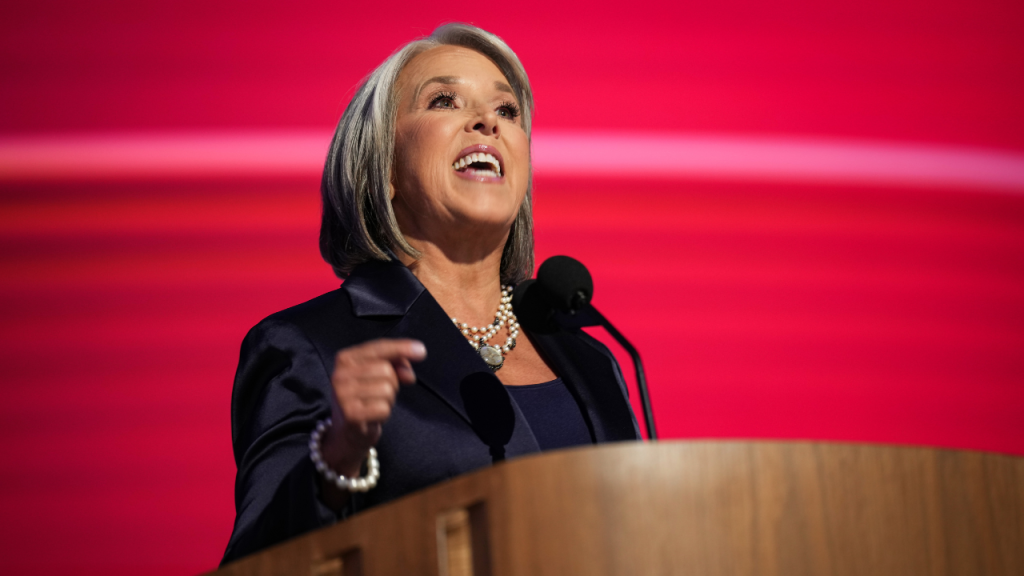In response to a significant escalation in juvenile crime and the widespread fentanyl crisis, New Mexico Governor Michelle Lujan Grisham announced the deployment of the National Guard to Albuquerque. Signed on April 8, the executive order authorizes the sending of 60 to 70 personnel to support local law enforcement, with a focus on enhancing public safety in troubled areas. However, critics, including GOP officials, argue that this measure is insufficient and advocate for more robust reforms to effectively combat these issues.
| Article Subheadings |
|---|
| 1) Executive Order for National Guard Deployment |
| 2) Criticism from the GOP on Insufficient Measures |
| 3) The Current Juvenile Crime Situation |
| 4) Operation Route 66 and Fentanyl Crisis |
| 5) Community Response and Hope for Change |
Executive Order for National Guard Deployment
Governor Michelle Lujan Grisham addressed the escalating issues of juvenile crime and drug-related incidents in Albuquerque by signing an executive order on April 8. This order permits the deployment of 60 to 70 members of the New Mexico National Guard to the state’s largest city as part of a strategic initiative aimed at addressing critical public safety concerns. The deployment is expected to occur by mid-May and focuses specifically on providing support to already strained law enforcement agencies without allowing guard personnel to actively engage in law enforcement duties like arrests. Instead, their duties will include scene security, traffic control, and logistical support to free up police resources.
Criticism from the GOP on Insufficient Measures
Despite the governor’s efforts, leaders within the New Mexico Republican Party have expressed strong discontent regarding this action. Leticia Muñoz, the state’s GOP Executive Director, indicated that the deployment of the National Guard is a response that falls short when compared to the scale of the issues at hand. She stated that a more comprehensive approach is necessary, notably calling for reforms such as bail reform and increased penalties for juvenile offenders. Muñoz emphasized that the problems are deep-rooted and require substantial legislative and systemic changes instead of temporary measures like the National Guard’s involvement.
The Current Juvenile Crime Situation
Juvenile crime in Albuquerque has reached alarming levels, with data indicating substantial increases in the behavior of offenders aged 11 to 17. Reports indicate that from 2019 to 2024, local law enforcement agencies have recorded around 2,600 arrests and citations for minors in this age group alone. Recent incidents include a shocking case where a 13-year-old was charged with first-degree murder in the death of a bicyclist, which exemplifies the grave nature of the crisis facing the city—and the state. It raises critical questions about the current legislative framework around juvenile offenders and the effectiveness of rehabilitation programs in New Mexico.
Operation Route 66 and Fentanyl Crisis
The fentanyl epidemic is another critical concern linked to the rise in crime rates. With over 65% of overdose deaths in New Mexico involving fentanyl in recent statistics, immediate action is crucial. In response to the public health crisis, the Bernalillo County Sheriff John Allen launched Operation Route 66, which has reportedly resulted in the seizure of approximately 2,700 fentanyl pills and nearly 400 arrests in the past several weeks alone. This operation underscores the severity of narcotics trafficking in the region and highlights the need for a concerted effort to combat this pervasive issue affecting the community.
Community Response and Hope for Change
The deployment of the National Guard, along with ongoing police operations like Route 66, has garnered mixed reactions from the community. While some residents feel a sense of relief knowing that additional resources might be brought into a precarious situation, there are persistent concerns regarding the adequacy of the measures being implemented. Critics argue that merely increasing police presence or guard involvement is a temporary fix rather than a long-term solution. To effect real change, community leaders and policymakers must prioritize discussions around structural reforms and address the socioeconomic factors that contribute to juvenile delinquency.
| No. | Key Points |
|---|---|
| 1 | Governor Michelle Lujan Grisham ordered the National Guard’s deployment to Albuquerque to combat juvenile crime and the fentanyl crisis. |
| 2 | The New Mexico GOP criticizes the plan, arguing for more comprehensive reforms, including tougher penalties and bail reform. |
| 3 | Juvenile crime rates have surged, with thousands of arrests of minors reported over the past few years. |
| 4 | Operation Route 66 has significantly impacted fentanyl overdoses by removing thousands of pills from circulation. |
| 5 | Community responses indicate a mix of hope and skepticism about the effectiveness of current measures. |
Summary
The announcement of deploying National Guard personnel to Albuquerque represents an urgent response to a dual crisis of juvenile crime and fentanyl overdoses plaguing the area. While the measure aims to alleviate some immediate pressures on law enforcement, widespread criticism from community leaders and political representatives suggests that more comprehensive reform is necessary to address these longstanding issues effectively. The community remains hopeful for change but remains wary of relying on temporary solutions.
Frequently Asked Questions
Question: Why was the National Guard deployed to Albuquerque?
The National Guard was deployed in response to rising juvenile crime and the fentanyl crisis seen in Albuquerque, aiming to support local law enforcement without directly engaging in arrests.
Question: What criticisms have been raised regarding the National Guard deployment?
Critics, particularly from the New Mexico GOP, argue that the deployment is insufficient to address the root causes of crime and call for more substantial reforms, such as changing bail laws and imposing harsher penalties on juvenile offenders.
Question: What is Operation Route 66?
Operation Route 66 is a local initiative aimed at combating drug trafficking, particularly fentanyl, which has led to significant arrests and seizures of illicit substances in Albuquerque.


